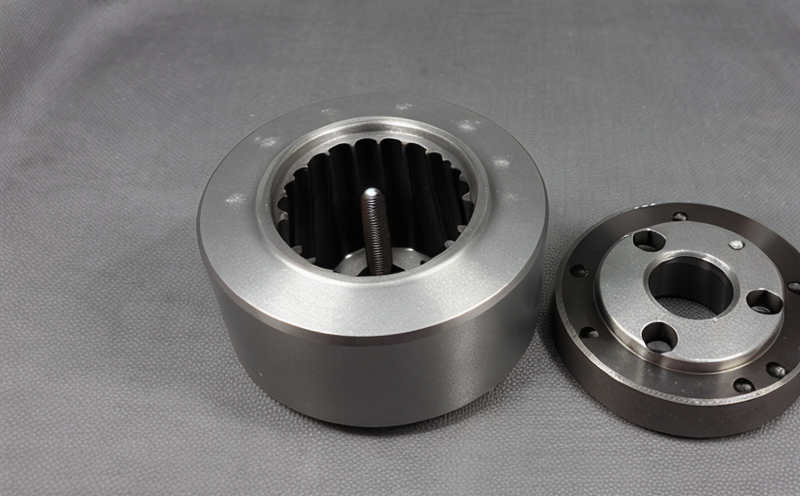ASTM F2971 Additive Manufacturing Process Characterization
The ASTM F2971 standard provides a framework for characterizing additive manufacturing (AM) processes, ensuring that parts manufactured using AM meet the necessary quality and performance requirements. This service focuses on the rigorous testing required to validate the process parameters of various AM technologies such as selective laser sintering (SLS), electron beam melting (EBM), and direct metal laser sintering (DMLS). By adhering to this standard, manufacturers can ensure consistent part quality across production runs.
The ASTM F2971 process characterization involves a comprehensive evaluation of the AM process itself rather than just the final product. This includes assessing the thermal profile, powder flow, and laser power settings that define the process parameters. By characterizing these parameters, we can identify potential sources of variability in part quality and ensure reproducibility.
One of the key aspects of ASTM F2971 is the use of standardized test specimens. These specimens are designed to mimic real-world parts but are specifically crafted to allow for detailed analysis of the AM process. The testing includes mechanical property assessments, dimensional stability checks, and microstructural evaluations. This ensures that not only the final product meets specifications but also that the process itself is optimized for quality.
The ASTM F2971 service extends beyond just the initial setup of an AM system. It provides ongoing support to ensure that the process remains stable over time. This includes periodic re-characterization to account for any drift in process parameters or changes in raw materials. By maintaining this level of oversight, we help our clients stay compliant with industry standards and reduce the risk of non-conforming parts reaching the market.
The ASTM F2971 process characterization is particularly important for industries such as aerospace, automotive, and medical device manufacturing. In these sectors, the quality and consistency of AM parts are critical to safety and performance. By leveraging this service, clients can ensure that their AM processes meet the stringent requirements set by regulatory bodies like FAA, EASA, and FDA.
In summary, ASTM F2971 process characterization is a vital tool for ensuring the quality and reliability of additive manufacturing processes. This service provides comprehensive testing and validation to support ongoing compliance and product excellence in sectors where precision and consistency are paramount.
Benefits
- Ensures compliance with ASTM F2971 standards.
- Achieves consistent part quality across production runs.
- Reduces the risk of non-conforming parts reaching the market.
- Maintains process stability over time through periodic re-characterization.
- Safeguards industries like aerospace, automotive, and medical device manufacturing where precision is critical.
- Supports ongoing compliance with regulatory bodies such as FAA, EASA, and FDA.
Why Choose This Test
The ASTM F2971 process characterization service offers several advantages that make it an essential tool for manufacturers looking to ensure the quality and reliability of their AM processes. By adhering to this standard, clients can achieve consistent part quality across production runs, reducing the risk of non-conforming parts reaching the market.
One key benefit is the ability to maintain process stability over time through periodic re-characterization. This ensures that any changes in raw materials or process parameters are promptly identified and addressed, maintaining compliance with industry standards.
The service also supports ongoing compliance with regulatory bodies such as FAA, EASA, and FDA. By providing comprehensive testing and validation, we help clients stay compliant with these stringent requirements, ensuring product excellence in critical industries.
For industries like aerospace, automotive, and medical device manufacturing, where precision and consistency are paramount, the ASTM F2971 process characterization service is an invaluable resource. It ensures that parts manufactured using AM meet the necessary quality and performance requirements, supporting ongoing safety and reliability.
Competitive Advantage and Market Impact
The ASTM F2971 process characterization service provides a significant competitive advantage by ensuring consistent part quality across production runs. This is particularly important in industries like aerospace, automotive, and medical device manufacturing, where precision and consistency are critical to safety and performance.
By adhering to this standard, manufacturers can reduce the risk of non-conforming parts reaching the market, thereby protecting their reputation and maintaining customer trust. This service also supports ongoing compliance with regulatory bodies such as FAA, EASA, and FDA, ensuring that parts manufactured using AM meet the necessary quality and performance requirements.
The ability to maintain process stability over time through periodic re-characterization is another key advantage of this service. It ensures that any changes in raw materials or process parameters are promptly identified and addressed, maintaining compliance with industry standards.
In summary, the ASTM F2971 process characterization service provides a competitive edge by ensuring consistent part quality, reducing the risk of non-conforming parts reaching the market, and supporting ongoing compliance with regulatory bodies. This ensures product excellence in critical industries like aerospace, automotive, and medical device manufacturing, where precision and consistency are paramount.





